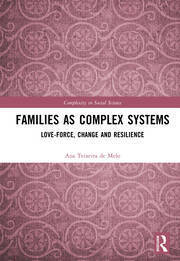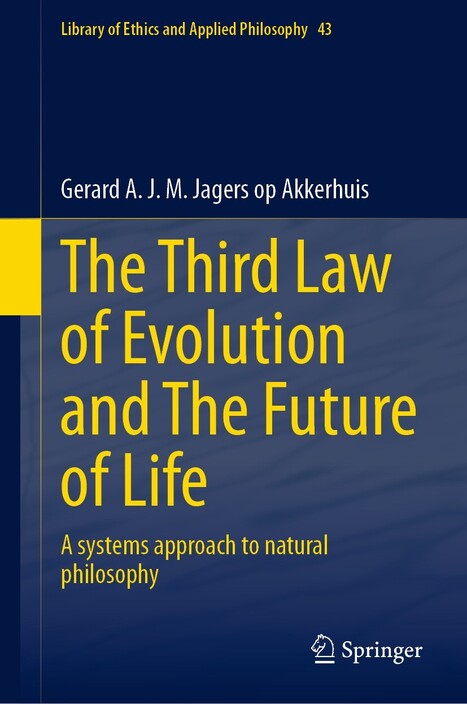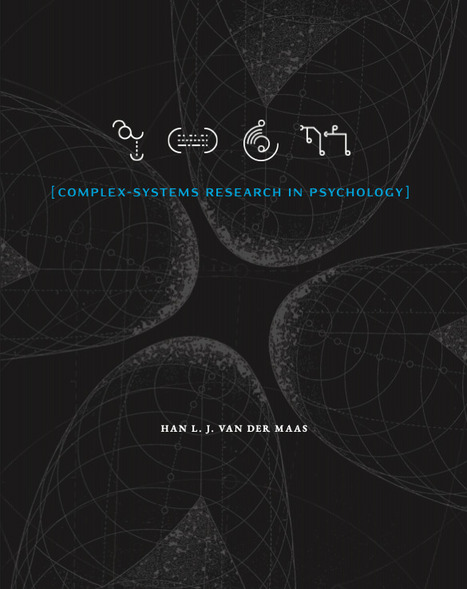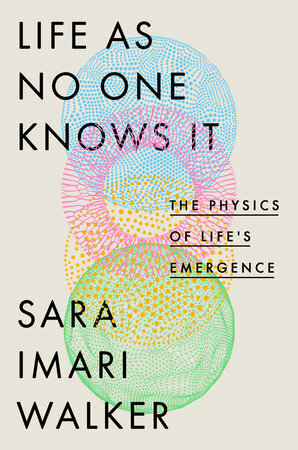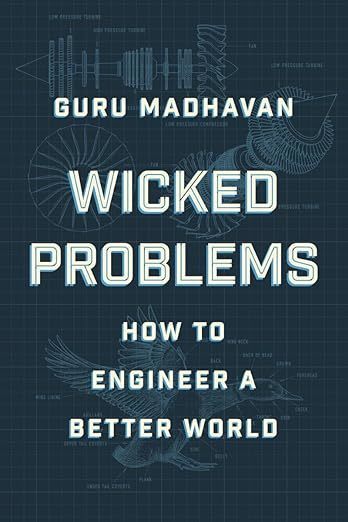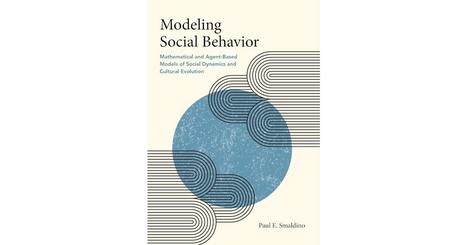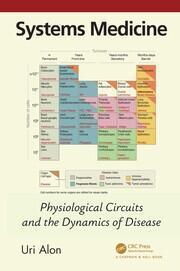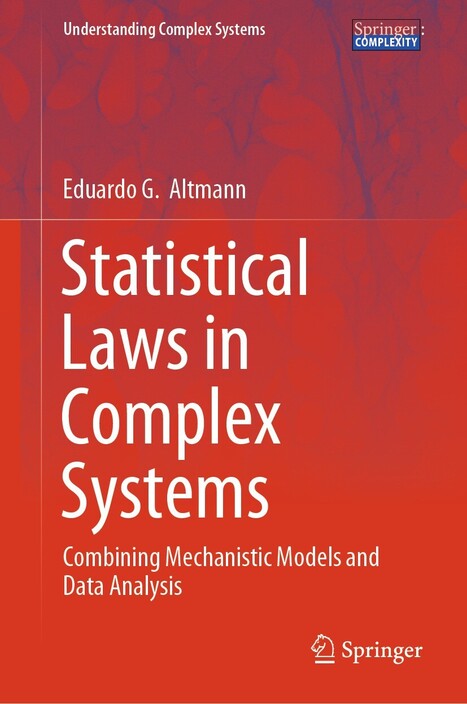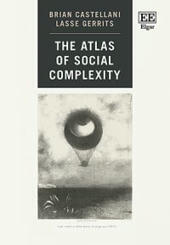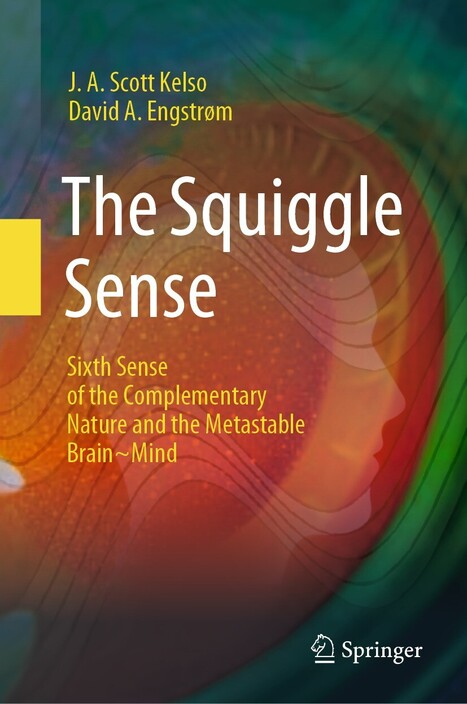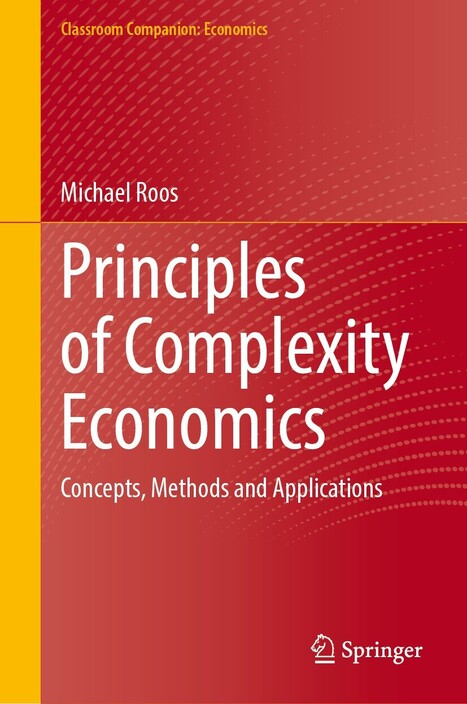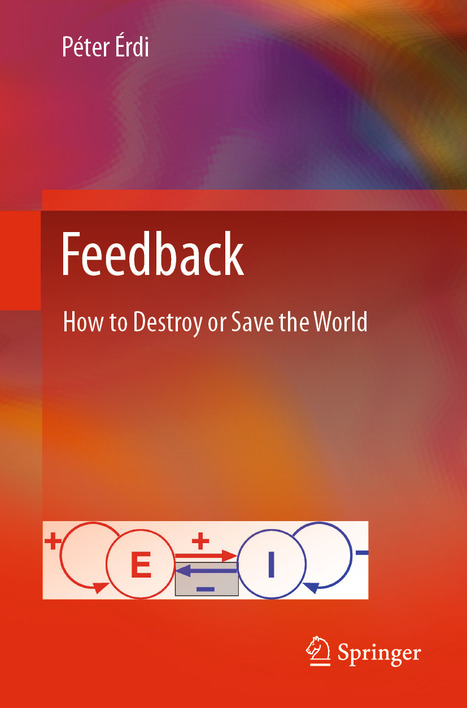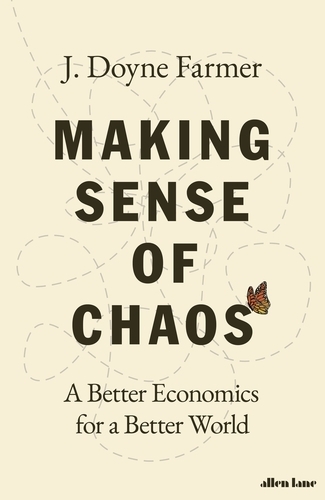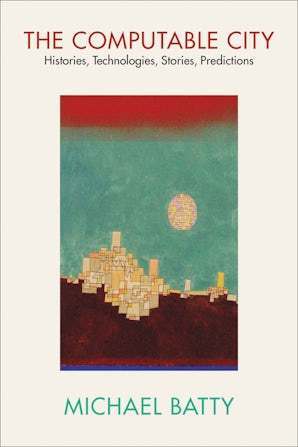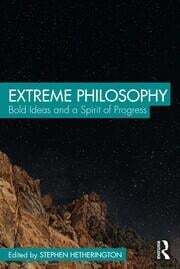 Your new post is loading...
 Your new post is loading...

|
Scooped by
Complexity Digest
April 18, 11:21 AM
|
Carl Zimmer For generations, physicists have puzzled over life. Their theories about matter and energy have helped them understand how the universe produced galaxies and planets. But physicists have struggled to understand how lifeless chemical reactions give rise to the complexity stored in our cells. In a new book, “Life as No One Knows It: The Physics of Life’s Emergence,” out on Aug. 6, Sara Walker, a physicist at Arizona State University, offers a theory that she and her colleagues believe can make sense of life. Assembly theory, as they call it, looks at everything in the universe in terms of how it was assembled from smaller parts. Life, the scientists argue, emerges when the universe hits on a way to make exceptionally intricate things. The book arrives at an opportune time, as assembly theory has attracted both praise and criticism in recent months. Dr. Walker argues that the theory holds the potential to help identify life on other worlds. And it may allow scientists like her to create life from scratch. “I actually think alien life will be discovered in the lab first,” Dr. Walker said in an interview. Read the full article at: www.nytimes.com

|
Scooped by
Complexity Digest
January 31, 11:03 AM
|
This book presents an innovative framework for conceptualising families as complex systems and for understanding and supporting positive change, adaptation and resilience. The development of this framework was based on a qualitative and abductive research process targeting change and resilience processes in multi-challenged families.
The theoretical novelty of this book is mostly expressed in the notion of Love-Force: a relational force emerging from the coupling processes between individuals with potential transformative effects on them, their interactions and environments. This book introduces a new vocabulary for understanding the complexity of families as complex systems and their change and resilience processes. Love-Force is presented as a supreme expression of the complexity of families and human bonds. It elaborates on the complexity of the family bonds, on the relation of Love-Force to change and resilience and its contributions to the conceptualisation of the Potential for Family Change.
Raising important theoretical and methodological challenges and questions, it presents a guide for future interdisciplinary research in the domains of complexity and family sciences and advances in practice. As such, it will be of interest to anyone interested in the complexity of human relations and to complexity scientists as much as family theorists, researchers and practitioners. More at: www.routledge.com

|
Scooped by
Complexity Digest
December 18, 2024 10:11 AM
|
* Offers an integrating framework for natural philosophy
* Connects biological and physical evolution through novel theory, elaborating an extended evolutionary synthesis
* Analyses science from a philosophical perspective and looks at philosophy from a scientific perspective More at: link.springer.com

|
Suggested by
John Stewart
November 20, 2024 2:52 PM
|
Human Superintelligence: How you can develop it using recursive self-improvement, by John Stewart
There are many books and articles that outline the findings made by existing complexity science. But there are almost none that identify how you can develop the thinking that was used to produce those findings. None show how individuals can develop the higher cognition that will be necessary if they are to contribute to the emergence of a genuine science of complexity.
In contrast, this book sets out specifically to provide methods and practices for developing higher cognition.
The book argues that the ability to construct and utilize mental models of complex phenomena is essential if humanity is to overcome the existential challenges that currently threaten the survival of human civilization on Earth. Furthermore, it argues that this metasystemic cognition is essential for the development of a genuine science of complexity – the book makes the case that the analytical/rational cognition that underpins current mainstream science is largely limited to generating only mechanistic reductions of complex phenomena.
The book recognises that most potential readers are likely to be highly skeptical about its claims to enable the scaffolding of metasystemic cognition. The website for the book attempts to dispel this skepticism by making the first chapter of the book freely available. This chapter is designed to evoke the realization that the methods detailed by the book are plausible, and that currently almost no one uses the methods systematically, despite their enormous potential.
The website for the book is HumanSuperIntelligenceBook.com

|
Scooped by
Complexity Digest
November 1, 2024 4:02 PM
|
A new theory of Neurobiological Emergentism that explains how sentience emerges from the brain.
Sentience is the feeling aspect of consciousness. In From Sensing to Sentience, Todd Feinberg develops a new theory called Neurobiological Emergentism (NBE) that integrates biological, neurobiological, evolutionary, and philosophical perspectives to explain how sentience naturally emerges from the brain.
Emergent properties are broadly defined as features of a complex system that are not present in the parts of a system when they are considered in isolation but may emerge as a system feature of those parts and their interactions. Tracing a journey of billions of years of evolution from life to the basic sensing capabilities of single-celled organisms up to the sentience of animals with advanced nervous systems, including all vertebrates (for instance, fish, reptiles, birds, and mammals), arthropods (insects and crabs), and cephalopods (such as the octopus), Feinberg argues that sentience gradually but eventually emerged along diverse evolutionary lines with the evolution of sufficiently neurobiologically complex brains during the Cambrian period over 520 million years ago.
Ultimately, Feinberg argues that viewing sentience as an emergent process can explain both its neurobiological basis as well its perplexing personal nature, thus solving the historical philosophical problem of the apparent “explanatory gap” between the brain and experience. More at: mitpress.mit.edu

|
Scooped by
Complexity Digest
September 26, 2024 11:41 AM
|
Humans are the ultimate complex systems. In this monograph intended for psychologists and social scientists interested in modeling psychological processes, Han L. J. van der Maas argues that we can only succeed in exploring the psychological system by understanding its complexity. By applying the tools of complexity science to psychology, researchers and practitioners can achieve desperately needed breakthroughs in the social sciences.
The book has three primary objectives: to provide a comprehensive overview of complex-systems research, with a particular emphasis on its applications in psychology and the social sciences; to provide skills for complex-systems research; and to foster critical thinking regarding the potential applications of complex systems in psychology. Readers should have a basic understanding of mathematics and knowledge of the programming language R.
Complex-Systems Research in Psychology explores a range of topics, including chaos, bifurcation, and self-organization in psychological processes, psychological network analysis, as well as agent-based modeling of social processes. It offers applications in various areas of psychology, such as perception, depression, addiction, cognitive development, and polarization.
Download full book at: www.sfipress.org

|
Scooped by
Complexity Digest
September 17, 2024 11:45 AM
|
The Complex World, originally published in Volume 1 of Foundational Papers in Complexity Science, presents an entirely new framing of nature, of the human role in the natural and technological worlds, and what it means to prosper on a living planet. We live in a complex world—meaning one that is increasingly connected, evolving, technological, volatile, and potentially poised for catastrophe. And yet we continue to treat the world as if it were simple: linear, unchanging, disconnected, and infinitely exploitable. Complexity science is an approach to understanding and surviving in a complex world. In this concise and comprehensive introduction, Santa Fe Institute President David C. Krakauer traces the roots of complexity science back to the nineteenth-century science of machines—evolved and engineered—into the twentieth-century science of emergent systems. By combining insights from evolution, computation, nonlinear dynamics, and statistical physics, complexity science provides the first scientific framework for understanding the purposeful universe. More at: www.sfipress.org

|
Scooped by
Complexity Digest
July 2, 2024 8:56 PM
|
An intriguing new scientific theory that explains what life is and how it emerges.
What is life? This is among the most difficult open problems in science, right up there with the nature of consciousness and the existence of matter. All the definitions we have fall short. None help us understand how life originates or the full range of possibilities for what life on other planets might look like.
In Life as No One Knows It, physicist and astrobiologist Sara Imari Walker argues that solving the origin of life requires radical new thinking and an experimentally testable theory for what life is. This is an urgent issue for efforts to make life from scratch in laboratories here on Earth and missions searching for life on other planets.
Walker proposes a new paradigm for understanding what physics encompasses and what we recognize as life. She invites us into a world of maverick scientists working without a map, seeking not just answers but better ways to formulate the biggest questions we have about the universe. The book culminates with the bold proposal of a new theory for identifying and classifying life, one that applies not just to biological life on Earth but to any instance of life in the universe. Rigorous, accessible, and vital, Life as No One Knows It celebrates the mystery of life and the explanatory power of physics.
More at: www.penguinrandomhouse.com

|
Scooped by
Complexity Digest
May 6, 2024 11:28 AM
|
Foundational Papers in Complexity Science maps the development of complex-systems science through eighty-eight revolutionary works originally published between 1922 and 2000. Curated by SFI President David C. Krakauer, each seminal paper is introduced and placed into its historical context, with enduring insights discussed by leading contemporary complexity scientists.
These four volumes are a product of collective intelligence. More than a compilation, Foundational Papers represents large-scale collaboration within the SFI community—brilliant thinkers who have contextualized the work that shaped their own research, resulting in a sparkling demonstration of how complexity shatters the usual scientific divisions and a look back at the path we’ve followed in order to gain a clearer view of what lies ahead. Read the full article at: www.foundationalpapersincomplexityscience.org

|
Scooped by
Complexity Digest
April 29, 2024 9:57 PM
|
Beyond is a Socratic love story, a Platonic dialogue, a Bhagavad Gita of our times: a philosophical quest folded into an epic exploration of the world. Imagine an encounter with unconfused human existence. What does it mean to fall in love with God? Can the Good only adopt the role of a servant, or can it rise to provide a beacon of light ruling us?
How often we are caught in the myopic perspective that the material world is all there is! And yet, mathematics and science themselves point to a greater, all-embracing, unchanging reality. This insight suffices to move past selfishness and advance humanity to the next level. Beyond dismantles the artificial borders that have for too long separated genres: here, science confronts philosophy, mathematics engages religion, poetry brings nonfiction to life, time meets infinity. Beyond is sui generis. Read the full article at: angelicopress.com

|
Scooped by
Complexity Digest
March 26, 2024 9:27 AM
|
An ode to systems engineers―whose invisible work undergirds our life―and an exploration of the wicked problems they tackle. Our world is filled with pernicious problems. How, for example, did novice pilots learn to fly without taking to the air and risking their lives? How should cities process mountains of waste without polluting the environment? Challenges that tangle personal, public, and planetary aspects―often occurring in health care, infrastructure, business, and policy―are known as wicked problems, and they are not going away anytime soon. In linked chapters focusing on key facets of systems engineering―efficiency, vagueness, vulnerability, safety, maintenance, and resilience―engineer Guru Madhavan illuminates how wicked problems have emerged throughout history and how best to address them in the future. He examines best-known tragedies and lesser-known tales, from the efficient design of battleships to a volcano eruption that curtailed global commerce, and how maintenance of our sanitation systems constitutes tikkun olam, or repair of our world. Braided throughout is the uplifting tale of Edwin Link, an unsung hero who revolutionized aviation with his flight trainer. In Link’s story, Madhavan uncovers a model mindset to engage with wickedness. An homage to society’s innovators and maintainers, Wicked Problems offers a refreshing vision for readers of all backgrounds to build a better future and demonstrates how engineering is a cultural choice―one that requires us to restlessly find ways to transform society, but perhaps more critically, to care for the creations that already exist. More at: www.amazon.com

|
Scooped by
Complexity Digest
March 24, 2024 11:41 PM
|
This book provides a unified, theory-driven introduction to key mathematical and agent-based models of social dynamics and cultural evolution, teaching readers how to build their own models, analyze them, and integrate them with empirical research programs. It covers a variety of modeling topics, each exemplified by one or more archetypal models, and helps readers to develop strong theoretical foundations for understanding social behavior. Modeling Social Behavior equips social, behavioral, and cognitive scientists with an essential tool kit for thinking about and studying complex social systems using mathematical and computational models. More at: press.princeton.edu

|
Scooped by
Complexity Digest
December 23, 2023 6:45 PM
|
Why do we get certain diseases, whereas other diseases do not exist? In this book, Alon, one of the founders of systems biology, builds a foundation for systems medicine. Starting from basic laws, the book derives why physiological circuits are built the way they are. The circuits have fragilities that explain specific diseases and offer new strategies to treat them. By the end, the reader will be able to use simple and powerful mathematical models to describe physiological circuits. The book explores, in three parts, hormone circuits, immune circuits, and aging and age-related disease. It culminates in a periodic table of diseases. Alon writes in a style accessible to a broad range of readers - undergraduates, graduates, or researchers from computational or biological backgrounds. The level of math is friendly and the math can even be bypassed altogether. For instructors and readers who want to go deeper, the book includes dozens of exercises that have been rigorously tested in the classroom More at: www.taylorfrancis.com
|

|
Suggested by
Hector Zenil
April 18, 11:20 AM
|
Hector Zenil Sara Walker’s Life as no one knows it arrives on the heels of extensive media coverage and promotional efforts that have catapulted it into bestseller status. I approached this book with a sense of anticipation, especially eager to explore her ideas on algorithmic probability and open-endedness--topics we briefly worked on together [1]. These areas of research are foundational to understanding life’s complexity and origins, and I had expected Walker’s book to delve into these subjects with depth and originality. However, the book surprised me for other reasons--and unfortunately, not in a positive way. Rather than presenting her own work, much of the book focuses on the ideas of Leroy (Lee) Cronin, a chemist whose assembly theory (AT) has met with significant skepticism and criticism in the scientific community. The central thesis of AT is that the ability of life to make numerous copies of itself--or to utilize multiple copies of the resources it requires--is the defining feature of living systems. This concept, quantified through an “assembly index,” proposes that life’s complexity can be reduced to the mere counting of these copies. Note that it has been considered and disproven many times. Cronin’s theory specifically has been disproven by multiple research groups [2,3,4], and the scientific merit of its approaches remains highly questionable. Walker, rather than scrutinizing or distancing herself from these ideas, devotes much of her book to promoting them without acknowledging the criticisms and counter-evidence. Read the full article at: www.computingreviews.com

|
Scooped by
Complexity Digest
December 19, 2024 8:14 AM
|
Provides an unifying approach to the study of statistical laws
Starts from simple examples and goes through more advanced time-series and statistical methods
Presents the necessary material to analyze, test, and interpret results in existing and new datasets Read the full article at: link.springer.com

|
Scooped by
Complexity Digest
December 3, 2024 4:41 PM
|
Embark on a riveting journey through the study of social complexity with The Atlas of Social Complexity. Over three decades of scientific exploration unfold, unravelling the enigmatic threads that compose the fabric of society. From the dance of bacteria, to human-machine interactions, to the ever-shifting dynamics of power in social networks, this Atlas maps the evolution of our understanding of social complexity.
Brian Castellani’s and Lasse Gerrits’ Atlas is not merely retrospective. It is a compass pointing to uncharted territories: new directions for research and intellectual debate. With wit and insight, they invite the reader to ponder unanswered questions, taking them on a quest for alternative ways to understand the intricate complexities of societies.
The Atlas of Social Complexity is a thrilling expedition into the heart of what makes us human: from cognition, emotion, consciousness, the dynamics of human psychology, to social networks, collective behaviour, politics and governance, technology and planning, and the practice of social interventions. The Atlas also visits cross-cutting themes such as intersectionality, configurational complexity, and research methods.
Organised around six transdisciplinary themes and twenty-four topics the Atlas is an invaluable resource for all social science and complexity science scholars and students interested in new ideas and new ways of working in social complexity. It paves the way for the next generation of research in the study of social complexity. Read the full article at: www.e-elgar.com

|
Scooped by
Complexity Digest
November 2, 2024 12:04 PM
|
A panoramic view of the evolution of life on our planet, from its origins to humanity's future.
In A History of Bodies, Brains, and Minds, Francisco Aboitiz provides a brief history of life, the brain, and cognition, from the earliest living beings to our own species. The author proceeds from the basic premise that, since evolution by natural selection is the process underlying the origin of life and its evolution on earth, the brain—and thus our minds—must also be the result of biological evolution. The aim of this book is to narrate how animal bodies came to be built with their nervous systems and how our species evolved with culture, technology, language, and consciousness.
The book is organized in four parts, each delving into a different aspect of evolutionary development:
• Definitions lays the groundwork by discussing the principles of biological evolution and explores the definition and mechanisms of life itself.
• Beginnings describes the origins of life, starting from the emergence of the first cells to the development of neurons as the building blocks for brain networks.
• The Rise of Bodies and Brains examines the evolution of animals with bilateral symmetry, the emergence of chordates and vertebrates, and the expansion and diversification of the vertebrate brain.
• A Singular Ape explores Homo sapiens and our species' unique traits, such as bipedality, tool use, culture, language, communication, and consciousness.
Comprehensive and deeply insightful, this book helps us understand our place in the natural world and the cosmos—as well as what the future might hold for life on earth. More at: mitpress.mit.edu

|
Scooped by
Complexity Digest
October 1, 2024 1:37 PM
|
Either/or thinking is a major stumbling block to human development and understanding. In this book Kelso & Engstrøm offer a whole new way of looking at the world, awakening a “sixth sense” that people didn’t realize they had. It draws on the profound relationship between nature’s many complementary contraries and the paradigm shifting science of coordination called Coordination Dynamics. The human brain~mind, through the multi- and metastable modes of its coordination dynamics, gives rise to a sentient faculty called the squiggle sense. Nature's contraries are perceived not only as opposing polar states, but as coexisting complementary tendencies, symbolized by the squiggle (~). Use this book to nudge your brain~mind into its metastable mode again and again, to better perceive the complementary dances of contraries, and to transcend the detrimental narrow-mindedness of polarized, either/or thinking. As a "Metastabilian" you can wield your squiggle sense to enhance and advance your life! Read the full article at: link.springer.com

|
Scooped by
Complexity Digest
September 21, 2024 2:01 PM
|
Once there was a thing called Twitter, where people exchanged short messages called ‘tweets’. While it had its flaws, I came to like it and eventually decided to teach a short course on entropy in the form of tweets. This little book is a slightly expanded version of that course.
It’s easy to wax poetic about entropy, but what is it? I claim it’s the amount of information we don’t know about a situation, which in principle we could learn. But how can we make this idea precise and quantitative? To focus the discussion I decided to tackle a specific puzzle: why does hydrogen gas at room temperature and pressure have an entropy corresponding to about 23 unknown bits of information per molecule? This gave me an excuse to explain these subjects:
• information
• Shannon entropy and Gibbs entropy
• the principle of maximum entropy
• the Boltzmann distribution
• temperature and coolness
• the relation between entropy, expected energy and temperature • the equipartition theorem
• the partition function
• the relation between entropy, free energy and expected energy • the entropy of a classical harmonic oscillator
• the entropy of a classical particle in a box
• the entropy of a classical ideal gas. Read the full book at: math.ucr.edu

|
Scooped by
Complexity Digest
August 13, 2024 7:24 AM
|
This textbook serves as an introduction to the rising field of complexity economics. In thirteen chapters, it provides a comprehensive and systematic overview of the concepts and methods of complexity economics and their applications to economic issues.
The book explains that the complexity approach is not just another method, but a worldview that is different from the one of academics with neoclassical training. By contrasting complexity economics with neoclassical economics, the readers are induced to reflect on their own unconscious beliefs about the economic world and develop their own approach to dealing with the pervasive complexities and uncertainties of reality. The first five chapters serve as an introduction and overview. Chapters 6 - 12 present the core concepts of the book. Each of the seven chapters introduces a key concept of complexity and provides applications to economics topics. The final chapter discusses the implications of complexity thinking for economic policy and for the future development of economics.
This textbook addresses advanced undergraduate students and graduate students of economics, interested in a better understanding of the concepts and the way of thinking in complexity economics, as well as in acquiring a sound technical foundation to understand most of the research literature. More at: link.springer.com

|
Scooped by
Complexity Digest
June 28, 2024 2:45 PM
|
The book offers an exciting, non-technical intellectual journey around applying feedback control to emerging and managing local and global crises, thus keeping the world on a sustainable trajectory. There is a narrow border between destruction and prosperity: to ensure reasonable growth but avoid existential risk, we must find the fine-tuned balance between positive and negative feedback. This book addresses readers belonging to various generations, such as: young people growing up in a world where everything seems to be falling apart; people in their 30s and 40s who are thinking about how to live a fulfilling life; readers in their 50s and 60s thinking back on life; and Baby Boomers reflecting on their past successes and failures. Read the full article at: link.springer.com

|
Scooped by
Complexity Digest
May 2, 2024 5:32 PM
|
We live in an age of increasing complexity, where accelerating technology and global interconnection hold more promise – and more peril – than any other time in human history. As well as financial crises, issues around climate change, automation, growing inequality and polarization are all rooted in the economy, yet standard economic predictions fail us. Many books have been written about Doyne Farmer and his pioneering work in chaos and complexity theory. Making Sense of Chaos is the first in his own words, presenting a manifesto for doing economics better. In a tale of science and ideas, Farmer fuses his profound knowledge with stories from his life to explain how to harness a scientific revolution to address the economic conundrums facing society. Using big data and ever more powerful computers, we can for the first time apply complex systems science to economic activity, building realistic models of the global economy. The resulting simulations and the emergent behaviour we observe form the cornerstone of complexity economics. This new science, Farmer shows, will allow us to test ideas and make significantly better economic predictions – and, ultimately, create a better world. More at: www.penguin.co.uk

|
Scooped by
Complexity Digest
March 29, 2024 3:38 PM
|
How computers simulate cities and how they are also being embedded in cities, changing our behavior and the way in which cities evolve. At every stage in the history of computers and communications, it is safe to say we have been unable to predict what happens next. When computers first appeared nearly seventy-five years ago, primitive computer models were used to help understand and plan cities, but as computers became faster, smaller, more powerful, and ever more ubiquitous, cities themselves began to embrace them. As a result, the smart city emerged. In The Computable City, Michael Batty investigates the circularity of this peculiar evolution: how computers and communications changed the very nature of our city models, which, in turn, are used to simulate systems composed of those same computers. Batty first charts the origins of computers and examines how our computational urban models have developed and how they have been enriched by computer graphics. He then explores the sequence of digital revolutions and how they are converging, focusing on continual changes in new technologies, as well as the twenty-first-century surge in social media, platform economies, and the planning of the smart city. He concludes by revisiting the digital transformation as it continues to confound us, with the understanding that the city, now a high-frequency twenty-four-hour version of itself, changes our understanding of what is possible. More at: mitpress.mit.edu

|
Scooped by
Complexity Digest
March 25, 2024 3:30 PM
|
There are many images of science and the activities of scientists. Some would imply that science will eventually reach the limits of knowledge while others create an expectation of endless horizons. Some people would believe that science has or will provide the answers to key open questions that lie ahead, while others experience fear regarding its development. In this book, we will look at all these aspects, going from particles, via atoms, cells, stars, galaxies, our place in the universe, to explore what makes us, human beings, really unique in nature: our ability to imagine and shape the future by making use of the scientific method. The book is an EPS action designed to address the social dimension of science and the grand challenges in physics that will bring radical change to developed societies, raise standards of living at the global scale, and provide basic understanding of nature on the horizon 2050. Read the full book at: iopscience.iop.org

|
Scooped by
Complexity Digest
March 11, 2024 6:13 PM
|
Philosophy’s value and power are greatly diminished when it operates within a too closely confined professional space. Extreme Philosophy: Bold Ideas and a Spirit of Progress serves as an antidote to the increasing narrowness of the field. It offers readers–including students and general readers–twenty internationally acclaimed philosophers who highlight and defend odd, extreme, or ‘mad’ ideas. The resulting conjectures are often provocative and bold, but always clear and accessible.
Ideas discussed in the book, include:
propaganda need not be irrational
science need not be rational
extremism need not be bad
tax evasion need not be immoral
anarchy need not be uninviting
democracy need not remain as it generally is
humans might have immaterial souls
human minds might have all-but-unlimited powers
knowing might be nothing beyond being correct
space and time might not be ‘out there’ in reality
value might be the foundational part of reality
value might differ in an infinitely repeating reality
reality is One
reality is vague
In brief, the volume pursues adventures in philosophy. This spirit of philosophical risk-taking and openness to new, ‘large’ ideas were vital to philosophy’s ancient origins, and they may also be fertile ground today for philosophical progress.
More at: www.taylorfrancis.com
|



 Your new post is loading...
Your new post is loading...



